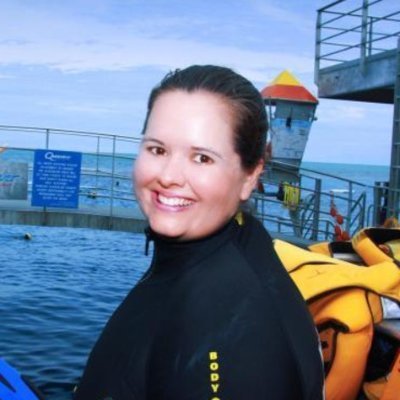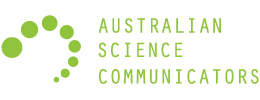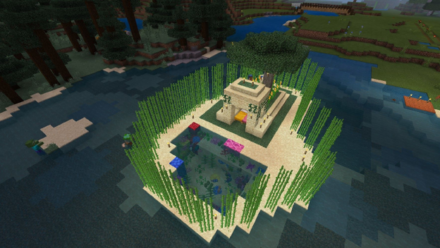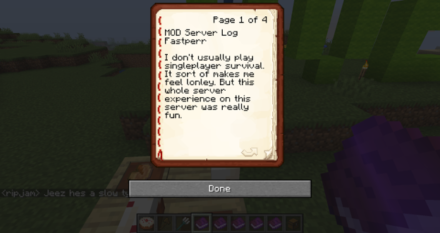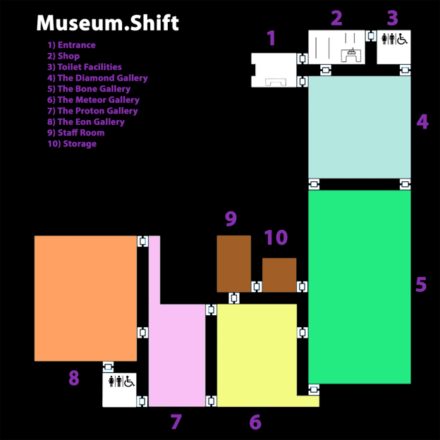Johanna Howes and Amanda Kruger, Science Space Wollongong –
Astronomy online: making a Planetarium accessible
When it comes to science, Astronomy seems to be universally fascinating. For us at Science Space, this is something we’ve taken advantage of for our 32 years of operation. At the moment, we have one of the most digitally advanced planetarium systems in Australia and we use it to engage with people of all ages. Until the pandemic forced us online, we exclusively catered to Greater Sydney and South Coast locals as well as tourists visiting the area. But with the reach afforded to us by the internet, we started to see groups from across the country. This raised a number of interesting opportunities for us. In this flash talk, we’re going to briefly describe our experiences turning a three dimensional planetarium dome into an online, interactive experience. We’ll discuss the unexpected benefits of running this kind of show, as well as where we see this program going in the future.
Clare Mullen, Bureau of Meteorology –
Weather from our lounge rooms! Communicating during COVID-19 lockdown(s).
How best to continue Bureau of Meteorology (Bureau) communications, with many staff working remotely due to COVID lockdowns? Production staff for videos and webinars were mostly Melbourne-based and working remotely at home, as Melbourne became the lockdown capital of the world. Best quality Bureau videos would usually involve a production studio, TV broadcast camera, and video editing software that requires large computing resources. Innovative solutions, patience, teamwork – including Microsoft Teams – and attention to detail helped adapt to remote work. BOMWebinars also continued as a popular communication channel during COVID lockdown, as attendance numbers continued to climb. Customer engagement hit new highs at the recent BOMWebinar Winter 2021 climate and water update with 543 live attendees – the highest attendance to date over three years of webinars. Webinars allow for a large group of customers from a variety of sectors to receive an in-depth briefing from Bureau experts, and the opportunity to have their questions answered by the experts. All BOMWebinars are recorded and available on-demand on the Bureau’s YouTube channel, with over 1,000 views for each webinar. These new practices now allow for future work flexibility and best service delivery.
Jay Ridgewell, Held Outside –
Nature relation: beyond facts, fun & scientific literacy for influencing behavioural change
Depending on your view, the planet is in crisis, or soon will be. I’m wondering if there’s a way to accelerate the widespread behavioural change that science communication aims for; to move us towards sustainable, regenerative communities who understand Earth’s limits and live within them. I started out in science education, and leant into public engagement in science through fun and explosions. As my experience developed, I moved towards strong key messages of scientific literacy: how science works and relates to us all. Coming to full grips with the global predicaments in the last few years, I have found that adjusting my understanding of self as part of ‘nature’ and spending much more time in it has helped me deal with grief and also dealt out a surprising amount of exquisite joy. Now as a nature and forest therapy guide, I’m investigating how I can use my skills to facilitate groups to strengthen their relationships with the more-than-human world. I am realising that this is how indigenous cultures have sustained regenerative communities for tens of thousands of years. The research behind nature relation or connectedness is growing, and overlaps across fields of psychology, behavioural science, sociology, medicine, ecology and systems thinking. At the least, it’s good for our individual health. At best, it’s a route to transforming design, culture and ecology.
Nancy Longnecker, University of Otago – Aotearoa Stories in Sound – Podcasts that Connect with Nature
Aotearoa Stories in Sound records sounds that are meaningful to New Zealanders, archives sounds and soundscapes, and produces inspiring podcasts. Two series – Dunedin Stories in Sound and Tune into Nature – are currently being broadcast on local community radio, and made available as podcasts. Sounds are familiar to Kiwis (the call of the melodious bellbird) or more exotic (a sperm whale recorded against the backdrop of seismic air guns). Dunedin Stories in Sound explores soundscapes and listening in a noisy, industrialised world, through its focus on the sounds, wildlife and stories of Dunedin’s marine environments. This podcast encourages listeners to tune into their sonic environments, aiming to inspire a sense of stewardship and awe for local wild spaces, such as the Dunedin harbour. Tune into Nature aims to bring listeners closer to Mother Earth, Papatūānuku, by sharing sounds and soundscapes from Otago’s coastal ecosystems – the resounding dawn chorus of Orokonui Ecosanctuary, waves softly crashing on sandy beaches, and the grunt of Sea Lions. Aotearoa Stories in Sound welcomes public participation, with invitations to make suggestions of sounds for recording or to contribute recordings. This ongoing project is a journey exploring unique New Zealand stories and soundscapes, starting locally in Otago.
Toby Hendy,
TikTok, YouTube and the Power of Online Science Communication
With over two billion users per month, online social media video platforms, notably TikTok and YouTube, present an exceptional opportunity for science communicators to reach a large audience. Unlike face-to-face activities, however, there are some distinct challenges associated with this. This includes the technical and creative side of video storytelling, through to making successful videos on algorithmic-powered platforms. This talk is a look behind the curtain at what it takes to communicate effectively on these platforms, sharing analytics, tools and advice. Based on real-world experience, the talk provides guidance for science communicators interested in using these platforms and how to overcome challenges including starting a brand new channel, how to deal with an online audience (and their varied feedback), and creating videos for that work for both viewers and the platform. The presenters are experienced science communicators: Toby Hendy (Tibees) makes videos about physics, math, astronomy and the history of science to her audience of over 700,000 subscribers with over 80 million views; and Julian O’Shea is a professional engineer and academic who has over 10 million views, and 100,000+ subscribers, and explores design, cities, including the popular Unknown Melbourne series.
Larissa Fedunik – Engaging maths academics in YouTube content creation
As the second-most accessed website worldwide (Alexa, 2020), YouTube presents unique benefits and concerns for science communication. With its broad reach, the platform is adept at engaging the public through educational and entertaining science content, but it has also been flagged as a hotbed of misinformation (Scheufele & Krause, 2019). One way to tackle misinformation is to directly engage scientists, academics and other subject matter experts when producing video content. However, it has been noted that individual academics are a relative rarity amongst educational content creators on YouTube (Maynard, 2021). This case study focuses on two video profiles of academics produced in my capacity as communications coordinator for the Sydney Mathematical Research Institute’s YouTube channel. I discuss how the featured academics take a proactive role in the storyboarding and narrative stages of video production, providing scientific and creative direction and feedback. This allows time-constrained academics to dip their toes into the world of content creation without the demands of becoming YouTube science “stars”. I will also discuss the unique challenges of communicating mathematics research to a general audience, using the examples of a pure mathematician specialising in hyperbolic geometry, and an applied mathematician who develops models for physical processes.
Ned Watt – Fact-checking goes viral: three opportunities to champion truth
Fact checkers have long supported science writers by ensuring that all the “facts” are correctly represented. In response to numerous surges of online misinformation brought about by informational deficiencies and political group agendas, fact-checking organisations have multiplied and connected on a global scale. In October 2021, the International Fact-Checking Network (IFCN) held its 8th annual conference. The conference laid out the experiences, some unique, some universal, of fact-checking organisations from Norway to South Africa. This talk focuses on the dramatic changes experienced by the fact-checking community during the COVID-19 pandemic and the deficiencies these changes have exposed. I will look under the bonnet of the fact-checking community during the COVID-19 pandemic and discuss three potential responses to our current pathological information environment: technological augmentation, the promotion of protective fact checking practice, and a culture of collaboration between fact checkers and allied stakeholders. In combination, these opportunities could improve the productivity, safety, and sustainability of fact checkers and support policy efforts to stem the flow of online misinformation beyond the COVID-19 pandemic. The experiences of those verifying scientific information in environments filled with misinformation, hold important lessons for science communicators and the publics they serve.
Amelia Travers, Avid Research –
#SciCommSeptember
In 2021 I created a set of Science Communication challenges to inspire STEM professionals to post on social media more regularly during September. This challenges was linked to, and inspired by my podcast Avid Research. In this talk I will discuss how #SciCommSeptember came to be. What I have learned about the #SciComm community and STEM professionals on social media more broadly, and how I hope to expand and improve the challenge next year.
Claire Harris, Innovate Communicate, The search for case studies
Communication and marketing are expanding fields and getting more complex with new digital marketing tools rapidly emerging. However, case studies of how communication and marketing is used in science, technology, engineering and mathematics are hard to find outside of academia.
As a practitioner in science communication and marketing, as owner of a business called Innovate Communicate, I am always keen to learn and share what works and what doesn’t. In this talk I’ll speak about what I have been searching for and where I’ve tripped up. And I’ll share some collaboration ideas and ask for input from the science communication community.
Wendy Preston and Adam Selinger, Children’s Discovery –
Dynamic and engaging online workshops
Being relative novices at presenting online science workshops, we went flat out for the recent National Science Week and Spring school holidays, delivering thirteen 6o minute sessions and six 3½ hour sessions.
The key points to what worked were:
1. Keeping things dynamic by maintaining lots of interaction such as mentioning children by name, seeking answers to questions, describing what we could see they were doing, encouraging non-verbal communication, using the chat.
2. Developing workshops being mindful of what can be described and demonstrated when not face-to-face. Ensuring sessions were accessible by only including experiments and activities that required easy-to-find materials from home or the supermarket and encouraging an attitude of ‘making do’ with what was available. We even developed workshops around the theme “what has everyone got at home?”, for example ‘Playful Paper’ used paper to explore different topics including topology, engineering, centre of mass and air resistance.
3. Having a second staff as ‘producer’ for larger groups, who could answer questions, look for hands up, monitor and answer the chat, scroll between multiple ‘pages’ of screens. They could also interact with the main presenter if a workshop had no or few cameras on.
4. Continuing the engagement by providing post-event @home handouts.
Laura Phan and Dylan DeLosAngeles, MOD. at UniSA –
What happens when museums replace masking mistakes with transparent troubleshooting?
The Custom-Made Demonstrator is part of the 2021 It’s Complicated exhibition at UniSA’s MOD. It showcases the role of robots in on-demand, customer-led manufacturing, alongside the smart sensor controlled vehicles that define Industry 4.0 – today’s industrial revolution. Due to the number of moving parts in the demonstrator, we anticipated occasional malfunctions, troubleshooting, and fine-tuning. Previous exhibition approaches to major faults ranged from ‘out of order’ signs and after-hours repairs, to closing galleries entirely during troubleshooting. However, for It’s Complicated we utilised an open door approach, i.e. galleries were kept open while floor staff fixed issues and engaged visitors in conversation regarding the troubleshooting process. The results of this approach include: – Visitor frustration regarding faults is tempered; – Curiosity is redirected instead of extinguished; – Visitors get a more technical perspective of the exhibit that wouldn’t otherwise be exciting enough to talk about; – Conversation is more dynamic and less constrained; – Dialogue moves in directions not set entirely by the ‘narrator’ i.e. MOD, therefore exchanges are more two-directional; – Visitors inject their own experiences and suggestions, thereby becoming an active player in the experience, equalising the museum-visitor relationship
Patrick Helean, Questacon –
Rubbish Science – Think outside of the bin
During the COVID-19 Canberra lockdown I have been presenting a daily science demonstration on a Facebook page my daughter and I created during the 2019 bushfires, called ‘Science in your suburb’ – Most are classic demonstrations that I like to think I am recycling. The concepts and science hasn’t changed, only the mechanism of demonstration these demonstrations all can be done with things from home and the first demonstration we will do together, I believe is a world premier and you can be a part of it. *I think therefore it …is? – but let me know if I am wrong! Today we all will do a flash experiment, with Rubbish. If you want to play along you will need to gather before the session: – an empty potato chip packet – sticky tape – a card board tube from a paper towel roll or two toilet paper rolls taped together pretty well to make a longer tube – a paper towel or tissue – and a PET bottle cap Don’t worry if you can’t find everything in your house now, it will allow future you to play! For me science communication is all about the message the audience takes away. We manipulate that by setting up the expectations of our target group; today that is you so let me know the good the bad and the ugly!
Wildaliz De Jesús Arocho – Mental Health and Our Changing Climate for policymakers
When we think about climate change,
mental health might not be the first thing that comes to mind. However, we are
all beginning to grow familiar with climate change and its health impacts:
worsening asthma and allergies; heat-related stress; vector-borne diseases;
illness and injury related to storms, fires, floods and drought. The connections
with mental health are central to this discussion. This is where science
communicators across all sectors of our communities can help. Health
professionals need trusted messengers to support the co-design of evidence-based
adaptation actions with frontline communities. For example, ecoAmerica and the
American Psychological Association worked together in the recently updated report
‘Mental Health and Our Changing Climate: Impacts, Inequities, Responses’. Reports
like these are powerful policy tools in emergency preparedness and climate
adaptation action planning. Using this report as a case study, I will identify
opportunities for Australian policymakers to collaborate with health
professionals for climate and health resilience in our communities.s
Indigo Strudwicke, Australian Academy of Science –
Flexible approaches to knowledge brokering between research disciplines and stakeholders
The Academy’s 22 National Committees for Science routinely undertake long-term planning for scientific disciplines in Australia, producing 10-year strategic (decadal) plans that assess the current state of a research community and set priorities to drive the discipline in the coming decade. Community engagement has a central role in long-term discipline planning and implementation, which relies on the liaison, ownership and backing of a whole sector over an extended period of time. Impact from strategic planning work is only achievable when driven by multiple stakeholders across various spheres of influence, including research communities, government departments, and knowledge brokering organisations such as the Academy. Each scientific discipline faces unique challenges and targets for success that are particular to their research field’s needs, and approaches for successful engagement in this space must be flexible and accommodating of the diversity in scientific practice. This presentation will provide brief examples of how the Academy works to facilitate engagement between experts and stakeholder groups in response to varying disciplinary needs. It will draw upon recent work with the research communities in the Information and Communication Sciences, Nutrition Science, and Space and Radio Science, with reference to their recent or upcoming strategic plans.
Hayley Teasdale, Australian Academy of Science –
Science advice for emerging issues
The Academy recently hosted the National RNA Science and Technology roundtable to identify Australia’s RNA science and technology priorities, by gathering some of Australia’s leading researchers. These priorities then needed to be communicated to policy makers, who were looking to establish an RNA manufacturing capability in Australia. The methodology used in establishing and communicating these priorities represents an innovation in science advice for emerging policy issues.
Simon Torok, Sonia Bluhm and Alysha Huxley, Scientell –
The highs (and lows) of science communication consulting
What are the challenges, surprises, and achievements you might expect as a science communication consultant? And how can organisations, such as government agencies and universities, better engage and benefit from communication consultants? Join a panel of Scientell’s communicators as they summarise the highs (and lows) of consulting. We’ll share advice, tips and pitfalls drawing on our experience completing more than 200 projects. Topics to be covered include how consultants work, how to find work and clients, communication project highlights, and how organisations can work better with consultants.
Catherine Wheller, The National Youth Science Forum –
From PhD to Communications Manager: Tips for the Pivot
You’re a science graduate with an in depth knowledge of a specific area. But you’ve decided that you’d rather communicate other people’s science than continue with researching your own. You’ve transformed your CV to emphasise your communication skills – your experience with 3 Minute Thesis, FameLab, and Pint of Science. Your fieldwork blog. Your social media mastery. Now you’ve landed a job as a Communications Manager. You’re working with a research group, communicating the research of a topic that is new to you. The research group doesn’t have much of a budget for comms. You’re new to formal communications and new to the topic area. Where do you start? Join Dr Catherine Wheller to learn how to flourish in your new role. Catherine will explain how to pivot your speciality and start you off on creating your first Communication Strategy using her experience jumping from a PhD in Earth Sciences into starting as the Communications Manager for a Bill & Melinda Gates global health project at the Natural History Museum in London.

